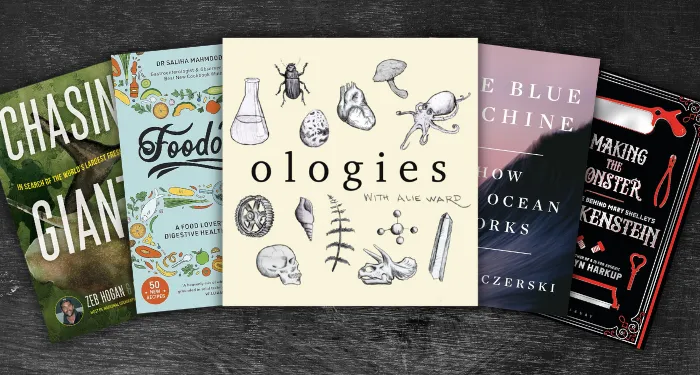
If You Like the Podcast OLOGIES, Read These Books
Emojis. Squirrels. Monsters. Tasmanian devils. Crow funerals. These are just a few episode topics of one of my favorite podcasts in the world: Ologies by Alie Ward. For those of you who are not familiar with it, Ward interviews experts in their respective fields — generally people who are ologists — primatologists, anthropologists, speech pathologists, etc. Her motto, “Ask Smart People Dumb Questions,” is perfect. She asks the questions that you want to ask but are too afraid to. She starts each episode figuring out what ology would be appropriate for her guest’s special area of knowledge, breaking down the origin of the words. Thanks to her, I know that the brontosaurus could be making a comeback. Ologies is a fun way to learn about niche topics of the world, including the sciences and cultures.
Ward breaks down the complicated concepts for listeners. She always dedicates part of the interview to listener questions from her Patreon supporters. I love the diversity of topics, from spiderwebs to feathers to vampires. It’s not uncommon for something to stop me in my tracks while listening to the show. So, in honor of the great Alie Ward, I decided to put together a list of nonfiction books whose authors would be right at home on the podcast (or, in at least one case, they already have!) I did my best to find the right ology per book, but I had to guess a few times.
Lions and Bears (Carnivore Ecology)
Wild Life by Dr. Rae Wynn-Grant (April 2, 2024)
Let’s start with one of the scientists who has been a guest on the podcast, Dr. Rae Wynn-Grant, a wildlife ecologist who has studied carnivores, including grizzly bears, African lions, and black bears. Wild Life is her memoir about her life, growing up in California and falling in love with the natural world. She decides to become a scientist in a field not known for its diversity. Tracking her adventures in her fieldwork and childhood, she makes the case that we are connected to everyone and everything and need to better care and share with the world.
Halloween (Halloweenology)
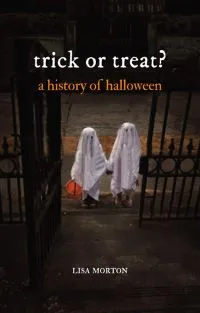
Trick or Treat?: A History of Halloween by Lisa Morton
Yes, Halloween was a few months ago. But I don’t care. It’s always Halloween in our home. Morton presents a fascinating look at the history of this most beloved holiday, striking down flim-flam about the day. What was so striking was how much of Halloween is a truly modern invention, even the trick or treating. So, if you are as bananas about Halloween as I am, this is the book for you.
The Cosmos (Cosmology)
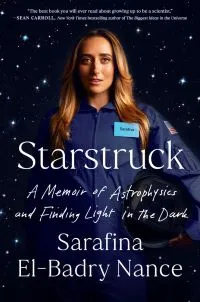
Starstruck: A Memoir of Astrophysics and Finding Light in the Dark by Sarafina El-Badry Nance
This memoir of Egyptian American astrophysicist Sarafina El-Badry Nance is a love letter to the stars and a memoir about her struggle to become a scientist. She recounts falling in love with the sky as a child while watching the cosmos with her father but also her challenges in facing obstacles along the way, including misogyny, racism, and even health crises. Nance opens each chapter with lessons about the cosmos, aiming to instill her love of the night sky to the reader.
Coyotes (Cynology)
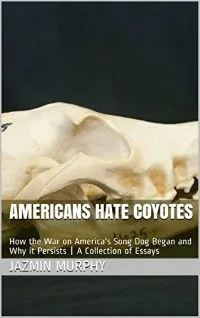
Americans Hate Coyotes: How the War on America’s Song Dog Began and Why it Persists by Jazmin Murphy
I’m putting my cards out on the table: I actually love coyotes. One of my favorite experiences on the CTA was seeing the coyotes wandering around Graceland Cemetery from the Red Line. But I guess other people feel differently about this canine. (Note: I tried to find the right ology for this line of study but the study of canines, which coyotes are, was the best I could find.) Murphy tries to find out why coyotes are so maligned in the US, exploring the role of coyotes in history and environmental policy. Save America’s Song Dog!
Food (Foodology)
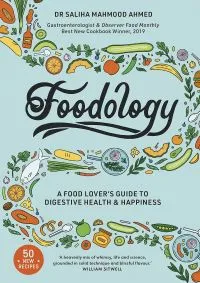
Foodology: A Food Lover’s Guide to Digestive Health and Happiness by Dr. Saliha Mahmood Ahmed
I had to include this one: it’s got an ology right there in the title! This work explores the world of food and digestion. It’s part memoir of growing up on Indian street food and part exploration of research on how food affects us individually. Plus, she’s included 50 recipes that will make your mouth and gut happy.
Giant Fish (Mega-Ichthyology)
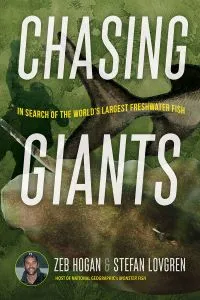
Chasing Giants: In Search of the World’s Largest Freshwater Fish by Zeb Hogan and Stefan Lovgren
As Americans, we really like to focus on the biggest, the fastest, the most expensive thing. So, while Hogan, the host of the television show Monster Fish on National Geographic, sets out on a quest to find the biggest freshwater fish, what he really finds is the ecological crisis for these magnificent monsters that have been understudied and threatened by human actions. It’ll give you an appreciation of the incredible diversity of nature, from pigeon-eating wels catfish in France to arapaima in the waters of the Amazon River. It also makes a case for the importance of the study of animals to provide a scientific basis for their conservation.
Ocean (Oceanology)
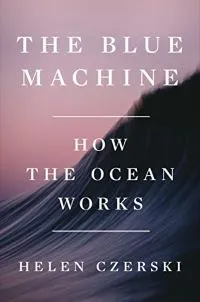
The Blue Machine: How the Ocean Works by Helen Czerski
We know oceans are important for the planet, but how exactly do they do that thing they do? The oceans are in trouble, but we need to know how it works to even know how to protect it. Czerski explains in Blue Machine the “ocean engine” and how the machine works together. She combines ecology, history, culture, physics, and more to explain how the ocean has been able to sustain us and other animals.
Resurrection (Resurrectology)
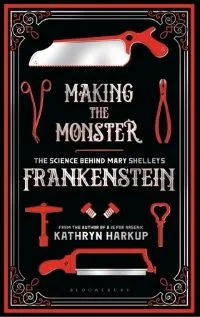
Making the Monster: The Science Behind Mary Shelley’s Frankenstein by Kathryn Harkup
Frankenstein has been on my mind of late, so I was thrilled to find out that Harkup had written this work. I had read her amazing book about Agatha Christie and poisons in A is for Arsenic, but in this one, instead of poison, she explores resurrection, focusing on the scientists who may have inspired Mary Shelley to write her masterpiece. If you want to know more about 18th and 19th-century science, body snatching, and related topics, this is the book for you.
Again, I had no idea what ology to use, so I decided to coin one.
So that’s just eight ologies that would fit (or have already fit) in Alie Ward’s podcast Ologies. If you want to get started with the podcast, I’m a big fan of Teratology (Monsters), Curiology (Emoji), Corvid Thanatology (Crow Funerals), Teuthology (Squids), and Ciderology (delicious apple beverages).
If you want more science books, check out this list of Summer 2023 Science Books. If you want microhistories about various objects and concepts (from the umbrella to coffee), check out this list of 50 Must-Read Microhistories.




